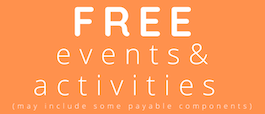Your Guide to Buying a Car in Adelaide
If “old reliable” is struggling to start, leaking oil, and making squeaks you aren’t comfortable with then perhaps you’re in the market for a new car. But where do you start? We’ve put together a guide with help from Managing Director of Adelaide’s Savvy, Bill Tsouvalas.
Should you buy new vs. used?
If you’re looking for a new car, you may be considering buying something used – but manufactured within the last ten years or so. Buying used is cheaper than buying new; you lose 20% of the car’s value when driving it home from the dealership – but financing the car may cost you more in the long run. “Lenders and banks are hesitant to finance older vehicles in comparison to factory fresh cars,” Tsouvalas says. “You may be faced with higher interest rates or even knockbacks from lenders who don’t want to take on the risk. Used cars are riskier on paper too. They are out of warranty most of the time. They may have structural damage, electrical wear and tear, and less advanced safety features. That’s also something to consider.”
The third option: certified used
The third way between used and new cars is buying certified used. Certified used are cars that are between one to three years old, are refurbished, and come with an extended manufacturer’s warranty. “These are pricier than most used cars but give you greater peace of mind as you’re dealing directly with a licenced motor car trader and get a broader set of consumer protections and warranties.” Which leads right into the next point – buying from private sellers and buying online.
Budgeting and car finance
Before looking at any type of car – never mind the ones you really want – you need to set a budget. Like most of us, you’ll probably need to take out a car loan. To figure out how much you can afford in repayments each month, you’ll need to use a car loans repayment calculator. “First you need to find out how much you have in disposable income each month,” Tsouvalas says. “Then how much you intend to borrow, the interest rate of the loan, and the length of the term. This will give you an approximation of how much you’ll pay each month or repayment period.”
Costs you need to be aware of
Other costs that you need to keep in mind, apart from finance repayments, are fuel, insurance, registration and scheduled servicing.
Getting the edge in negotiation
You can gain an upper hand in negotiation by getting car loan pre-approval. Pre-approval does what it says on the tin – you’re given “conditional” approval for a loan, usually up to a certain amount. You then have a month (sometimes up to three) to buy a car. This amount is your “price ceiling” which you cannot go over (unless you want to pay out of pocket.) “This gives you a lot of leverage when negotiating,” Tsouvalas says. “If your seller can’t meet your price ceiling you have to walk away. For dealers, closing a less favourable deal is better than no deal at all. Use that to your advantage.”
Buying online – a bargain or a headache?
If you do decide to go down the used car route, most of your car buying options are found online. Carsales.com.au, CarsGuide, and Trading Post Online are where most car deals are found by used car dealers, wholesalers, and private sellers. Private sellers can also be found on Gumtree, eBay, and Facebook Marketplace. “There is definitely a price cut when dealing with private sellers since they don’t have overheads to consider and just want to get rid of their car,” Tsouvalas says. “But you can run afoul of scams and other dodgy practices when buying online.”
Beware of scammers
For example, a “seller” may email or SMS you with an offer to buy a car well below the market price. They may ask for an upfront deposit without sharing any information on the car except for a photo.
“You can weed out dodgy sellers by asking for a vehicle’s registration number or VIN. If they can supply it no questions asked, then you’re on to a winner.”
You can also use the Personal Property Security Register (PPSR) to check if the car is written off, stolen, or if there is finance owing. This can protect you even further.
Test driving and tyre-kicking
When you’re satisfied the PPSR and other checks have ticked the boxes, you can arrange for a test drive.
When looking over the car, notice if it has any dings, bumps, flood damage and obvious body repair. Look for build-ups of engine oil or rust. If you’re not sure what you’re looking for, you can arrange an independent inspection from the RAA of SA or other valuation company.
When test driving, note the comfort of the seats, if the steering drifts, if there are any odd noises, if the electricals are 100% in order, and if there are any after-market modifications. You should also ask the seller why they’re selling and if the car is still registered. After all that you need to ask yourself the big question – do you see yourself driving this car long term? If not, cross it off the list until you find one that suits.
For more information and all enquiries please visit the Savvy website
At Play & Go Adelaide we make every effort to provide accurate information to the best of our knowledge at the time of publication. We recommend confirming times, dates and details directly before making any plans as details may be subject to change.
Image Source: supplied
SUBSCRIBE
Want to get all the latest events and activities straight to your inbox?
Subscribe to our weekly email newsletter below to keep up to date with our latest posts and find out all the best events & activities for Adelaide families. Newsletters are only sent once a week, and you may sometimes get a special offer exclusively for our subscribers only!

















